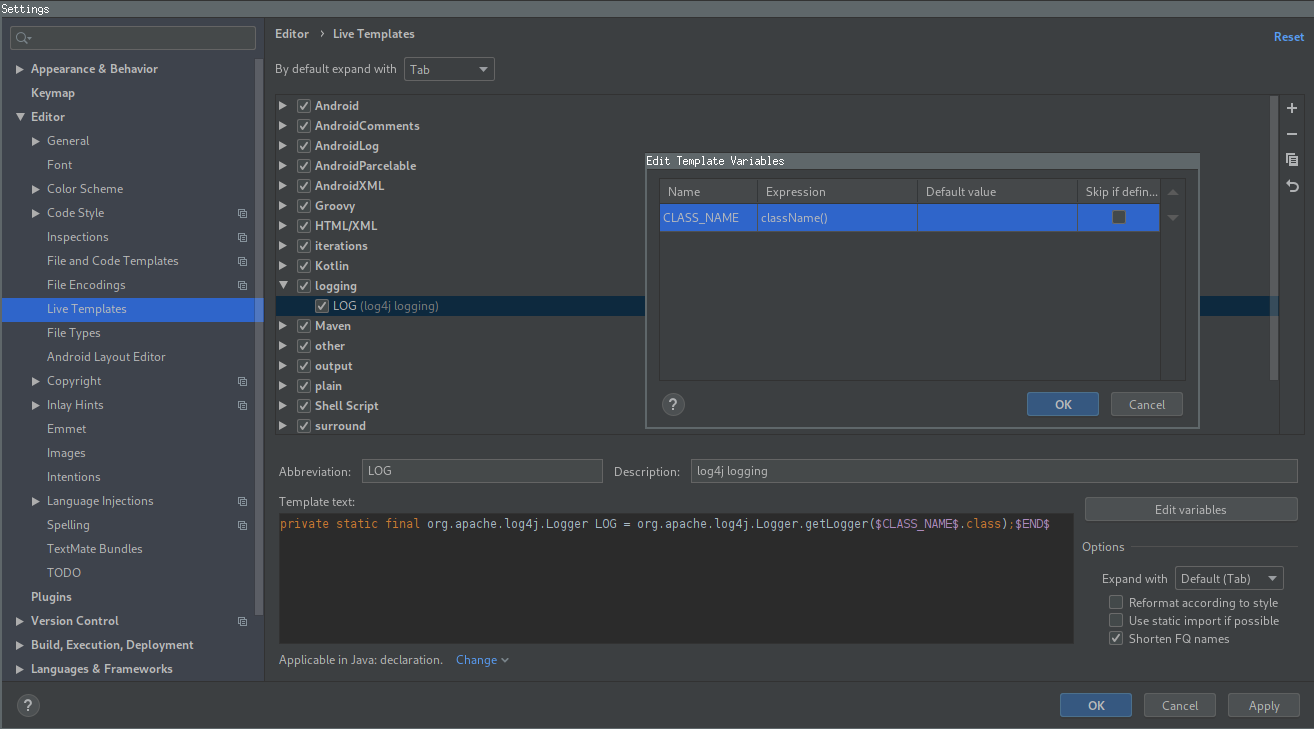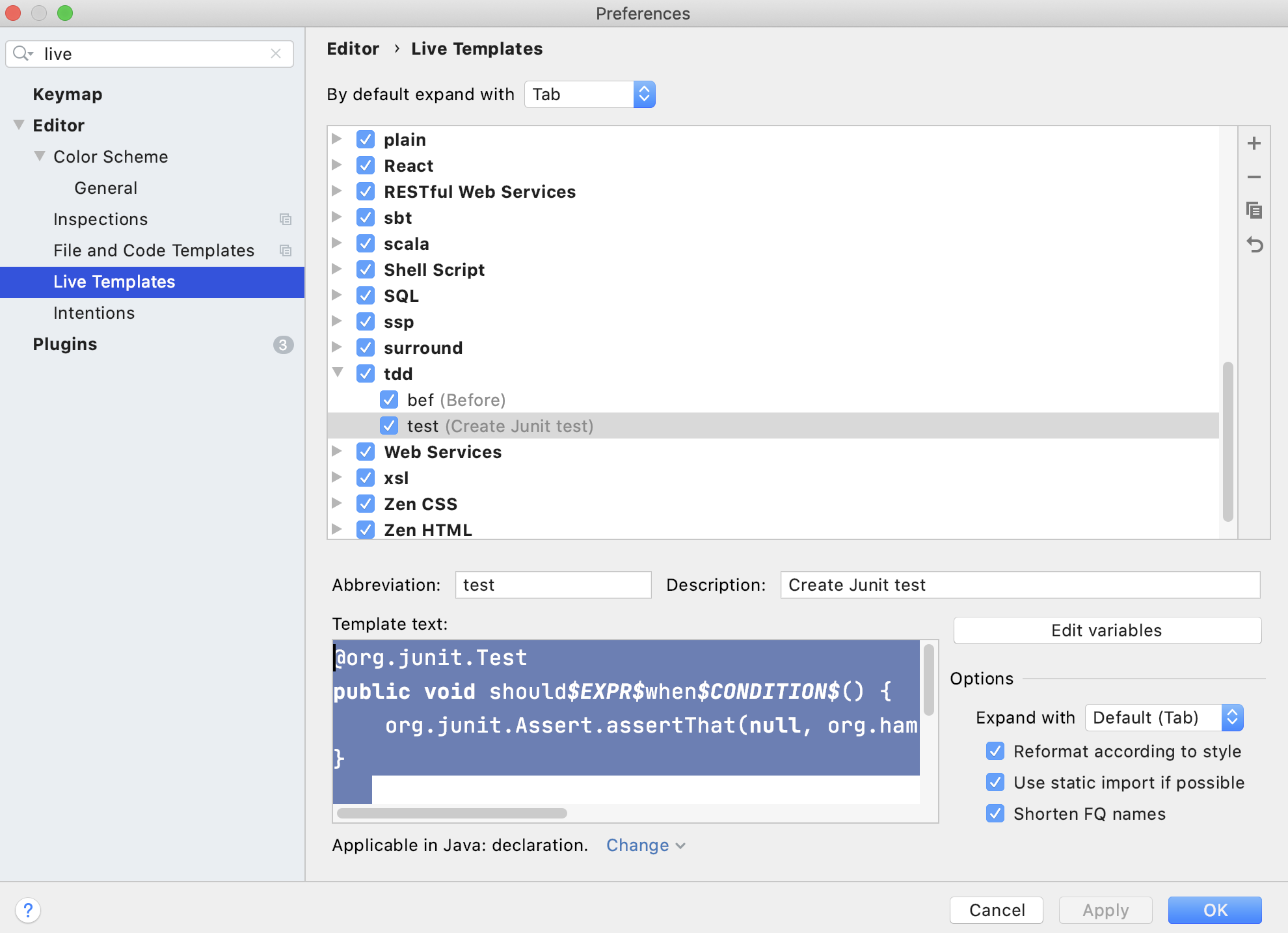Here is the Eclipse template that I want to port:
${:import(org.apache.log4j.Logger)}
private static final Logger LOG = Logger.getLogger(${enclosing_type}.class);
My current version in IDEA is as follows:
private static final Logger LOG = Logger.getLogger($CLASS_NAME$.class);$END$
where $CLASS_NAME$ is configured to use className() as its expression.
Unfortunately, I don't find any documentation on adding the import statement. Is there somehing equivalent to Eclipse ${:import(...)}?


